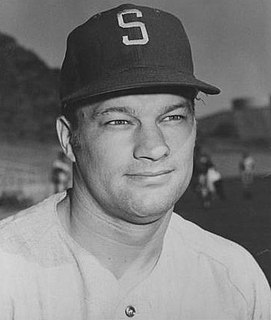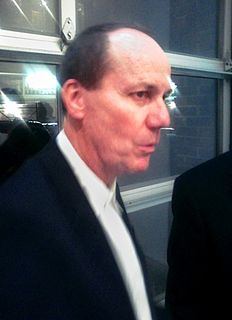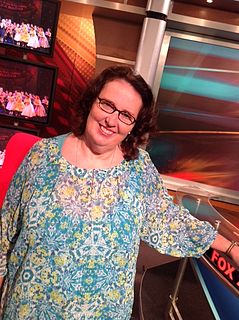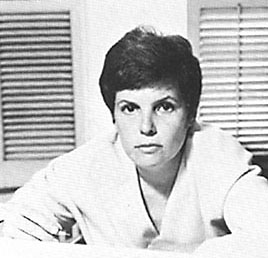A Quote by Deborah Harkness
She was like a camera that had been chronically out of focus until someone came by and twisted the lenses into alignment.
Related Quotes
At that moment a very good thing was happening to her. Four good things had happened to her, in fact, since she came to Misselthwaite Manor. She had felt as if she had understood a robin and that he had understood her; she had run in the wind until her blood had grown warm; she had been healthily hungry for the first time in her life; and she had found out what it was to be sorry for someone.
Jim Pagliaroni joined the club tonight and is going to be a welcome addition. He was describing a girl that one of the ballplayers had been out with and said, “It's hard to say exactly what she looked like. She was kind of Joe Torre with tits.” This joke can only be explained with a picture of Joe Torre. But I'm not sure any exist. He dissolves camera lenses.
The camera follows a young woman as she makes her way through the stands to an area set aside for repentance and conversion. But Jesus' stories imply that far more may be going on out there: beyond that stadium scene, in a place concealed from all camera lenses, a great party has erupted, a gigantic celebration in the unseen world.
Dave and I had been song writers in Nashville, trying to get around, out hustling, trying to meet people. We randomly met Hillary out in town one night. She said she was a singer. I asked her if she would like to write some songs with Dave and me, and a week later she came over. Instantaneously we had this chemistry.
Dena had always been a loner. She did not feel connected to anything. Or anybody. She felt as if everybody else had come into the world with a set of instructions about how to live and someone had forgotten to give them to her. She had no clue what she was supposed to feel, so she had spent her life faking at being a human being, with no idea how other people felt. What was it like to really love someone? To really fit in or belong somewhere? She was quick, and a good mimic, so she learned at an early age to give the impression of a normal, happy girl, but inside she had always been lonely.
Will only looked at her. There had been light in his eyes on the stairs, as he'd locked the door, when he'd kissed her--a brilliant, joyous light. And it was going now, fading like the last breath of someone dying. She thought of Nate, bleeding to death in her arms. She had been powerless then, to help him. As she was now. She felt as if she were watching the life bleed out of Will Herondale, and there was nothing she could do to stop it.
They say true love only comes around once and you have to hold out and be strong until then. I have been waiting. I have been searching. I am a man under the moon, walking the streets of earth until dawn. There's got to be someone for me. It's not too much to ask. Just someone to be with. Someone to love. Someone to give everything to. Someone.
On 'Hairless Toys,' I've tried to create an ambiguous character to go with an ambiguous record. She's anything but rock n' roll - she's so not rock n' roll that, in a twisted way, she's kind of radical. She's like someone from my memory, almost like my mother, and she's lost in some space-time between the 1960s and the late '80s.
She smiled. She knew she was dying. But it did not matter any longer. She had known something which no human words could ever tell and she knew it now. She had been awaiting it and she felt it, as if it had been, as if she had lived it. Life had been, if only because she had known it could be, and she felt it now as a hymn without sound, deep under the little whole that dripped red drops into the snow, deeper than that from which the red drops came. A moment or an eternity- did it matter? Life, undefeated, existed and could exist. She smiled, her last smile, to so much that had been possible.
She didn't care anymore... and she got no pleasure from the work she did, but she did it. Everything bored her. She found that when she didn't have a notebook it was hard for her to think. The thoughts came slowly, as though they had to squeeze through a tiny door to get to her, whereas when she wrote, they flowed out faster than she could put them down. She sat very stupidly with a blank mind until finall 'I feel different' came slowly to her mind. Yes, she thought, after a long pause. And then, after more time, 'Mean, I feel mean.
I didn't think that and I didn't verbalize that to myself or within meetings that we ever had, but we wanted to make a hard-nosed, gritty, realistic spy thriller. Roger talked about using lenses. He shot hi-def, but using anamorphic lenses that he'd found from this warehouse. He was so thrilled with that. Him and Romain [Lacourbas] were just like kids in a toy store with their lenses.







































